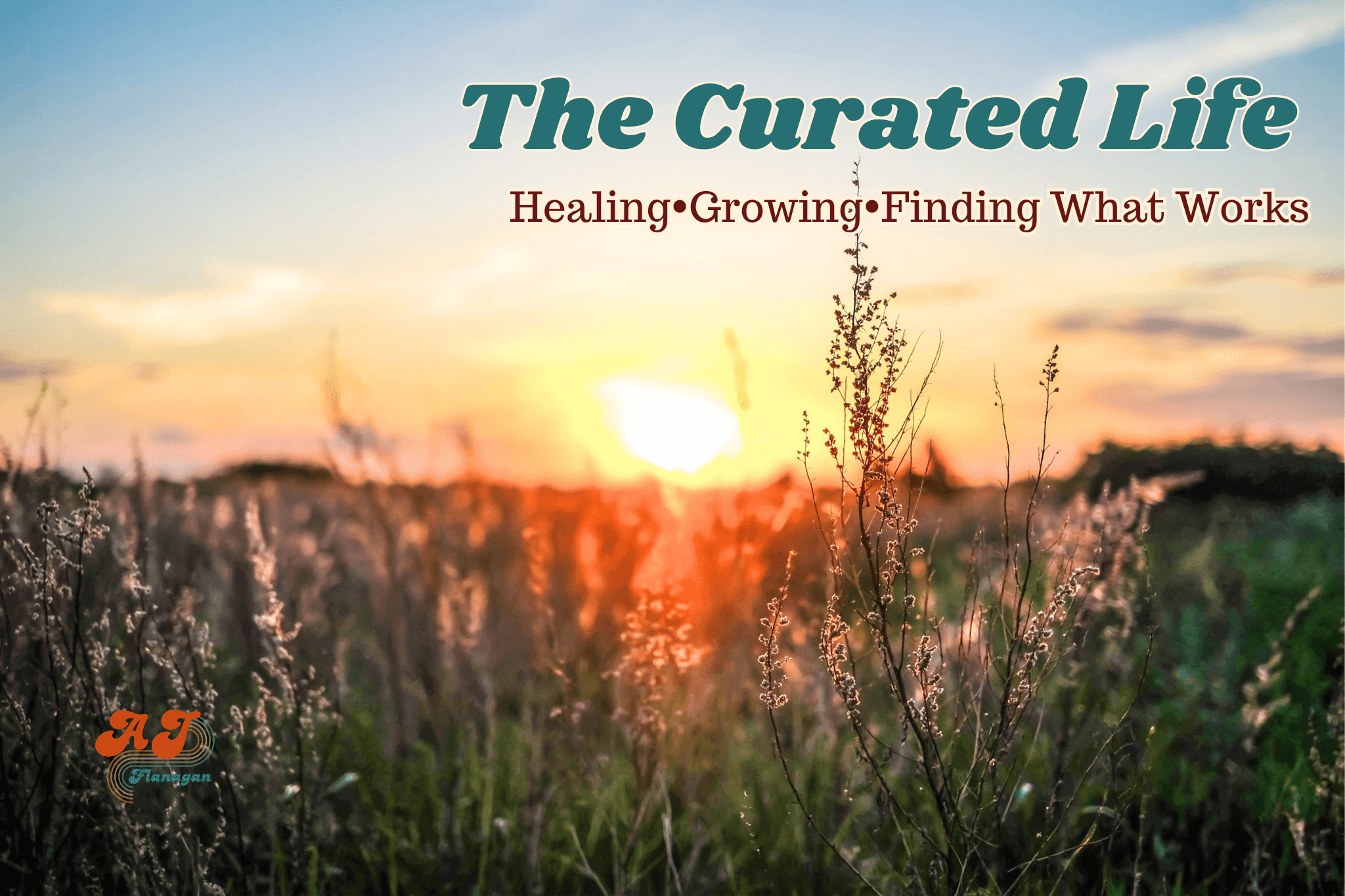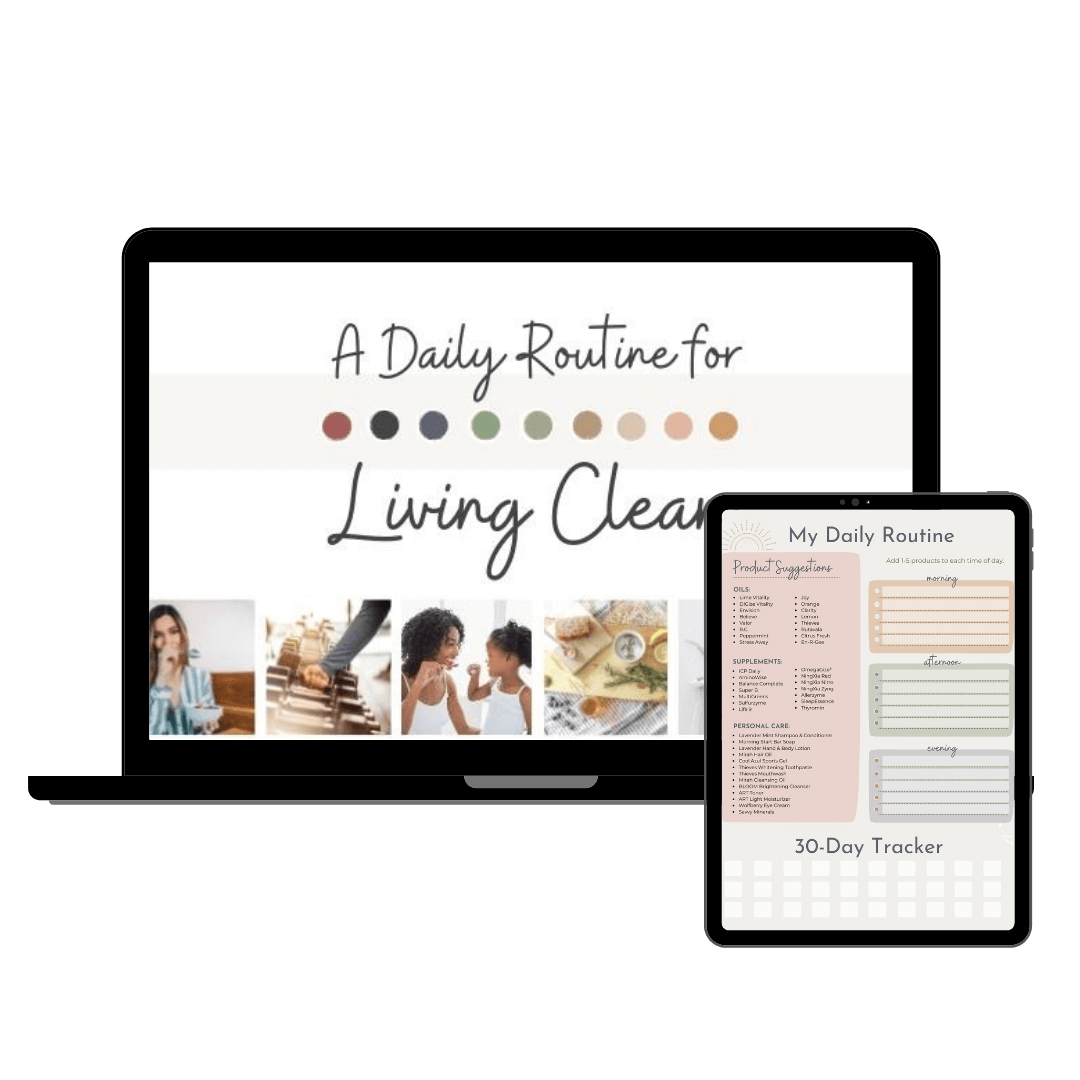
(Not to be confused with the bestselling book — this is just my take on how stress, grief, and life’s wear-and-tear have shown up in my own body.)
We often think of our bodies as separate from our emotions—until they remind us they’re not. Whether it’s stress, grief, or years of go-go-go living, our bodies quietly keep track of everything we don’t deal with. This mind-body connection can show up in subtle but powerful ways. Here’s what I’ve been learning about that unspoken tally.

The Silent Scorekeeper
I used to think my body was pretty forgiving. Get a few nights of poor sleep? I'll bounce back. Stress-eat my way through a hard week? No big deal. Power through a busy season on caffeine and stubbornness? Totally doable.
But now I’m noticing the little ways my body is keeping score. A stiff neck that won’t quite relax. A knot in my stomach that shows up out of nowhere. That low-grade exhaustion that doesn’t go away with just one good night’s sleep.
During Eric’s cancer treatments, I was so focused on making sure he was okay that I didn’t really notice what was happening to me. I was running on adrenaline and to-do lists, not realizing how much I was storing—both emotionally and physically. I thought I was managing everything just fine… but my body knew better.
It’s funny how the body doesn’t always speak in words. Sometimes it just sends a headache. Or a craving. Or a wave of tears in the middle of the grocery store because I saw a brand of soup he liked.
I guess what I’m starting to understand is this: the body keeps the score. Even when we’re not paying attention.
The truth is, our bodies remember all kinds of things—not just the big emotional hits, but the small, repeated strains too. Over time, little things add up. An old injury. A lopsided way of walking. Years of stress carried in the same part of your back. It’s like the body has a memory bank, and it never forgets to charge interest.

The Obvious Scores – Injuries, Overuse, and Daily Wear
Let’s be honest—some of the ways our bodies “keep score” are easier to spot. That knee you tweaked years ago that still acts up when it rains. The back that stiffens if you sit for more than 20 minutes. The wrist that gets cranky after one too many texts or scrolls.
We like to call it aging, and sure, some of it is. But sometimes it’s really just the result of years of doing the same thing the same way, over and over. Carrying kids on the same hip. Sleeping in the same position. Working at a desk that was almost the right height but not quite. Our bodies quietly log all those repetitive movements until suddenly we find ourselves wincing when we reach for the top shelf.
Add to that the cumulative impact of not stretching, not resting, and not listening, and it’s no wonder our muscles and joints have things to say. Loudly. In the form of aches, limited range of motion, inflammation, or even scar tissue we didn’t realize we were building.
For me, it is usually my neck and shoulders—tight as piano wire from times of stress. Looking back, I can see how long I’d been carrying things without ever setting them down. And my body? It remembered.
I didn’t realize how bad my sleep had gotten until I finally had a stretch of good nights. It was like someone turned the lights back on in my brain. And now? When I skimp on sleep, I feel it immediately. Not just in tiredness, but in my mood, my focus, my ability to cope with stuff that used to just roll off me.
But not all the ways our bodies keep score are this visible. Some signs are quieter, buried under emotional weight we didn’t even realize we were carrying.

The Invisible Bruises – Trauma, Grief, and Emotional Holding
Not all scars show up on the surface. Some take up residence deeper in the body—in places we wouldn’t expect, and in ways we don’t always recognize.
Grief doesn’t always look like tears and heartbreak. Sometimes it’s a racing heart in a quiet room. A stomach that flips when you hear a certain song. Shoulders so tight they feel like armor.
For me, it showed up in weird waves. A heavy chest that made it hard to breathe. A tightness up the side of my neck. A foggy brain when I was trying to focus on basic tasks. I thought I was just tired, but I wasn’t just tired—I was holding.
I remember once, standing in the grocery store, reaching for a can of soup—and suddenly I couldn’t breathe. It was the kind Eric liked when he wasn’t feeling well. I hadn’t even thought about it in months, but my chest tightened, and my eyes welled up before I could stop them. That wasn’t just grief. That was my body saying, “Hey, you’re still holding this.” And it was right.
I didn’t realize how much I was carrying until I started reading about how different emotions tend to settle into different parts of the body. And suddenly, things started to click.
Where Emotions Often Show Up in the Body:
• Anger → Liver
• Grief → Lungs and chest
• Fear → Kidneys
• Worry/Overthinking → Stomach and spleen
• Stress and Burdens → Shoulders and neck
• Sadness or Loneliness → Heart and upper back
(These ideas come from traditional Chinese medicine, somatic therapy, and just… lived experience. If you've ever felt physical upset or a knot in your stomach when you've been worrying about something, you know what I'm talking about.)
It’s like the body becomes a holding tank for all the emotional stress we don’t have time—or space—to deal with. And over time, it fills up.
Common signs your body may be overwhelmed:
• Frequent tension in your neck or shoulders
• Ongoing fatigue despite rest
• Brain fog or trouble concentrating
• Emotional outbursts that feel “random”
• Digestive issues or headaches with no clear cause
The body doesn’t speak in words. It speaks in symptoms.
And if we’re not listening? It just starts talking louder.

The Slow Build – Sleep, Food, and What We Soak In
Some scores the body keeps are loud and obvious. Others are more like slow drips—barely noticeable until the bucket’s full and overflowing.
Things like poor sleep, nutrient-poor food, and daily exposure to synthetic chemicals don’t always cause immediate issues. That’s what makes them so easy to ignore. One bad night of sleep? No big deal. But months of restless nights? Years of low-level exhaustion? That takes a toll.
Same with what we eat. A sugar binge here, some processed food there—it happens. But when our bodies aren’t getting what they need to repair and restore, they start to show it. In our energy, in our skin, in our mood, in our immune system.
And then there’s what we don’t even realize we’re taking in: the chemical soup of everyday life. The stuff in our soaps, sprays, lotions, air fresheners, makeup, cleaning products. All the synthetic fragrances and hormone disruptors and weird preservatives that get absorbed through our skin, inhaled into our lungs, and slowly, silently stored.
That process is called bioaccumulation—when your body stores toxins it can’t eliminate fast enough, and they slowly build up over time.
Especially for those of us who grew up spraying ourselves head to toe in body mist and cleaning with whatever smelled the strongest. (Shoutout to the Gen Xers—we really didn’t know any better.)
This isn’t about fear—it’s about awareness. Once I started learning about this stuff—and noticing how much better I felt when I swapped a few things out—it was hard to unsee it.
One of the easiest changes I made? Ditching synthetic fragrance in my everyday stuff. I swapped my laundry detergent first, half-expecting it to be a letdown—but honestly? My skin chilled out almost immediately. No more weird itchy patches or headaches from the “pretty” scent that apparently wasn’t so pretty for my body.
It’s not about perfection. (Believe me, I’d lose that game.) It’s about awareness. Noticing how the things we repeatedly do, use, and consume affect the way we feel—physically, emotionally, mentally.
And realizing that our bodies are keeping score… even when the numbers look small at first.

Listening In – What Happens When We Start Paying Attention
Here’s the part I’m learning (sometimes slowly, sometimes the hard way): our bodies may keep score, but they’re not out to punish us. They’re trying to talk to us.
They send little signals—whispers, nudges, even the occasional full-on protest—not to be dramatic, but to get our attention. And when we start to actually listen? Things begin to shift.
Not overnight. Not with one green smoothie or a yoga class. But gradually, in a hundred tiny ways.
When I started resting more—really resting, not just zoning out with my phone—I noticed my energy didn’t bottom out so fast. When I swapped out a few products for cleaner options, my skin stopped freaking out. When I gave myself permission to feel what I was feeling instead of stuffing it down, my body didn’t feel quite so heavy.
It’s not about a total lifestyle overhaul. Honestly, that sounds exhausting. For me, it’s been more like learning a new language. One that starts with small questions, like:
• Why is my stomach doing flips right now?
• What would help my body feel better and stronger today?
• Am I ignoring a need that’s trying to get my attention?
Some days the answer is magnesium and a hot bath. Other days it’s a real cry and a real meal. Sometimes it’s just going to bed.
The more I check in, the less my body has to shout. And the more I treat it like a partner instead of a machine I’m dragging through life, the more it responds—with steadiness, with softness, and sometimes even with strength I didn’t know was still in there.
Reading ingredient labels used to overwhelm me—but now I just pay attention to how things make me feel. If something makes my skin flare or my head pound, that’s my cue. I don’t need to be perfect, just aware. And honestly? That shift has made all the difference.

One Moment When I Listened—and What Happened
Not long ago, I had one of those days where everything felt like too much. My to-do list was a mile long, I was mentally foggy, and my shoulders were creeping up toward my ears again. Normally, I’d push through. But instead, I paused. I turned off my phone, made a cup of tea, and sat outside for ten quiet minutes. No productivity. No multitasking. Just breathing.
And you know what? That tiny pause reset everything. My shoulders dropped. My brain cleared just enough to finish what actually needed to get done—and let the rest go.
I’m learning that listening doesn’t always mean doing something big. Sometimes it just means noticing.
Writing about this stuff, letting the tears come when they need to, resting when I feel off—it’s helped more than I expected. Not because it “fixes” anything, but because it lets me soften a little. It gives my body some space to not hold everything so tightly.
I’m still figuring all of this out. Some days I’m great at tuning in. Other days I eat ice cream for dinner and wonder why my stomach hates me. Progress, not perfection. That’s the reminder I keep coming back to.
Our bodies are always talking—we just don’t always know how to listen. I’m learning that tuning in doesn’t require perfection. It just takes awareness, softness, and small acts of care. And little by little, that adds up to healing.
Here’s to finding what works (and letting go of what doesn’t),
AJ

If you’ve made it to the bottom of this post, I’m guessing something here resonated—whether it’s navigating grief and growth, diving into natural wellness, or just trying to live a more intentional life in a fast-paced world.
This space is where I share what I’m learning (and unlearning), the tools that are helping me along the way, and the little things that bring joy, healing, and clarity—even on the hard days.
This space is where I share what I’m learning (and unlearning), the tools that are helping me along the way, and the little things that bring joy, healing, and clarity—even on the hard days.
Want in?
You’re invited to join my newsletter, Finding What Works—a weekly-ish note from me with practical wellness tips, nostalgic nods for GenX souls, and honest reflections from someone who’s still figuring it all out (but loves sharing the good stuff along the way).
This isn’t about perfection or pressure. It’s about finding what supports us, what lights us up, and what brings us back to ourselves—together.
You’re invited to join my newsletter, Finding What Works—a weekly-ish note from me with practical wellness tips, nostalgic nods for GenX souls, and honest reflections from someone who’s still figuring it all out (but loves sharing the good stuff along the way).
This isn’t about perfection or pressure. It’s about finding what supports us, what lights us up, and what brings us back to ourselves—together.
Click here to subscribe and come along for the ride. I’d love to have you in my corner.
Have a question or something to share?
✨ My blog exists because I know what it feels like to keep everything jumbled in your head — like a messy pile of clothes you can’t sort through.
Writing it all down brings clarity, calm, and sometimes even healing answers I didn’t know I was looking for.
Honestly, that’s why I keep showing up to write — it helps me make sense of things.
Even if you have no intentions of ever publishing your work, I highly recommend writing stuff down. It doesn't have to be a literary masterpiece or even full, grammatically correct sentences... just dump those random thoughts onto paper... you'll see what I mean.
*This blog centers the GenX experience, simply because that’s the lens I live through—but anyone looking for connection, natural wellness, grief support, or a little real-talk in this messy stage of life is more than welcome.











0 Comments